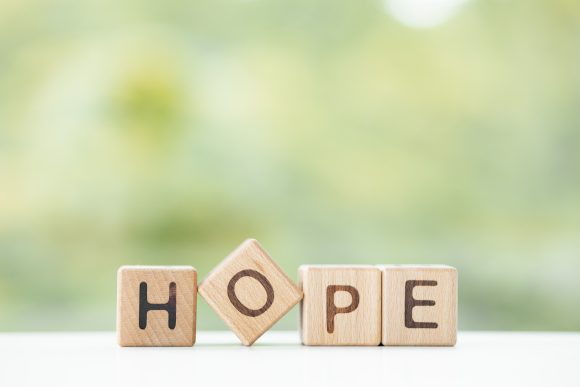Depression is the most common of mood disorders. It is estimated that nearly 30 million Americans suffer from the often-debilitating disease and it is, in fact, one of the 15 leading causes of disability in developed countries. It is widely believed that depression may the body’s response to chronic and significant stress that seems insurmountable to most people.
While Western physicians are often quick to prescribe drugs, Eastern medicine, used alone or in combination with medication, can offer quick and lasting relief from depression.
The following signs describe someone who suffers from depression, with at least five of the symptoms lasting for at least 14 days:
- * Depressed mood most of the day, nearly every day
- * Markedly diminished interest in pleasure in almost all activities most of the day, every day
- * Significant weight loss or gain without dieting, or major changes in appetite or eating habits
- * Insomnia or hypersomnia nearly every day
- * Anxiety or lack of desire to do anything
- * Fatigue or loss of energy nearly every day
- * Ongoing feelings of worthlessness, guilt, desperation and psychic pain
- * Inability to think or concentrate; indecisiveness daily
- * Recurrent thoughts of death or suicide
While drugs have largely been effective in providing temporary relief from acute depression and can assist in the therapeutic process, the side effects are proving to be a severe downside to treatment. In fact, one of the potential side effects is increased suicide risk in certain patients. Most recent studies have shown that number to be increasingly higher in teenage patients taking antidepressants. Another drawback is that the drugs often take up to six weeks to begin working.
Patients are advised to get a firm Western diagnosis and then seek treatment options. As acupuncturists, we don’t get involved with our patient’s medication; that is always determined by the referring professional.
Acupuncture can help in many ways. Acupuncture is a proven method for stimulating the production of neurotransmitters in the brain such as monoamines and endorphins. Monoamines are commonly referred to as serotonin and norepinephrine. Double-blind studies have confirmed that acupuncture is as effective as drug therapy treatments, and is often used in combined treatments plans. Acupuncture in conjunction with Chinese herbal medicine can also help wean patients off of medication.
Debbie, 36, was referred by a psychotherapist. Debbie had been struggling with sadness, loss of interest in pleasurable activities, weight gain and Irritable Bowel Syndrome (IBS). Debbie did not want to resort to taking medication for her symptoms, so she sought alternative treatment through acupuncture. Her symptoms were relieved in about two weeks with two treatments per week. She has been consistent in her follow-up treatments for approximately three months. Her mood swings, sadness, and stomach cramps were allayed through acupuncture and herbal medicine.
In Traditional Chinese Medicine (TCM), it is believed that depression results from a blockage in certain meridians of the body. It is also believed that there are five elements — Wood, Fire, Earth, Metal, and Water — that provide the framework in which depression can be diagnosed and treated. There is usually a combination of elements that exist within a person.
Wood: This type of depression is typically comprised of repressed anger, disappointment, and frustration from feeling a lack of control. Personalities can be arrogant, aggressive, overconfident, confrontational and driven.
Fire: This type of depression is characteristically due to “heartache” or loss of a relationship — disillusionment by love. Impulsiveness is a personality trait, which can often lead to suicidal states.
Earth: This type of depression is often associated with digestive imbalances and eating disorders. Sufferers become heavy and unmotivated, sinking deeply into depression.
Metal: This type of depression is often experienced by those who carry the weight of the world upon their shoulders. They are often grieving for people and experiences from the past and expend much of their conscious thought turned toward the past.
Water: This is the most clinically significant and potentially dangerous type of elemental depression. Patients are often unaware of the nature or origin of their pain. They often become incommunicable and suffer from severe psychological imbalances such as schizophrenia, psychoses and severe depression.
Once the Eastern diagnosis has been made, treatments focusing on the corresponding organs can often provide relief from the varying symptoms.
Terry, 52, was suffering from myriad symptoms including severe depression, weight gain from binge eating, bloating and significant aches and pains.
“No one was safe from my agitation and anger. It was like being in a black hole,” she said. “Around my menstrual cycle, I would become depressed, forlorn and hopeless. Then came the sugar and chocolate binges and my body would become swollen and painful. I felt everything had a sinister shadow to it.”
Terry was taking Paxil prescribed by her physician, which stabilized the wide mood swings. She sought treatment through acupuncture and after approximately six to eight treatments, changes occurred profoundly and quickly, including a decrease in eating disorder episodes. Through discussions and evaluations, it became clear that the impetus of the problem was hormonal.
Six months later, with nutritional counseling, the proper level of anti-depressants, and by treating the root cause of the problem in the body, her symptoms and dysfunctional behavior have virtually disappeared. Says Terry, “My family tells me that I can quit anything [drug therapy] … anything but the acupuncture! They are no longer walking on eggshells.” Terry now has a more positive and optimistic outlook for the first time in years.


‘Great article Karen!
I’m interested in finding out more about an alternative treatment for depression.